This Week in History: July 31 – August 6
Christopher Columbus sets sail for the "new world."
By: Kelli Ballard | August 1, 2022 | 995 Words
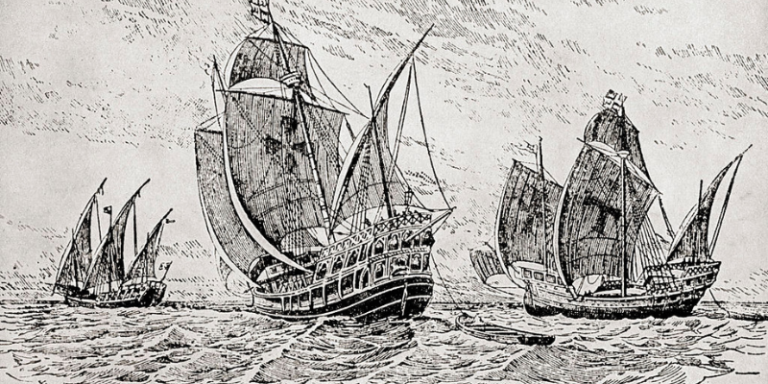
The Fleet Of Columbus, The Santa Maria, The Pinta And The Nina. (Photo by: Universal History Archive/Universal Images Group via Getty Images)
“We are made wise not by the recollection of our past, but by the responsibility for our future.”
~ George Bernard Shaw
August 3, 1492: Christopher Columbus Sets Sail
History credits Christopher Columbus with discovering America, although the land was already inhabited by the indigenous people, and he thought he had landed in Asia! The son of a wool merchant, Columbus first started sailing as a teenager, after he got a job on a merchant ship. In 1476, pirates attacked a ship he was aboard, and he had to float to shore on a scrap of wood. After reaching land, he studied the subjects that would set him on his course to the New World: astronomy, cartography (drawing maps), mathematics, and navigation.
The 15th and 16th centuries are known as the “Age of Exploration.” Leaders of European nations were sending expeditions out, hoping to find wealth and land that had yet to be discovered. By the end of the 15th century, it was still almost impossible to get to Asia from Europe by land, so the European empires took to the sea, sailing south along the West African coast and then around the Cape of Good Hope.
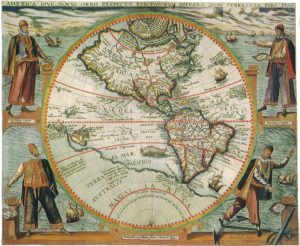
(Photo by: Picturenow/Universal Images Group via Getty Images)
Columbus thought of another way to make the journey: sail west across the Atlantic, instead. He incorrectly believed he Earth’s circumference was smaller than his colleagues suggested, and argued that it would be faster to go this way. He finally convinced the Spanish monarchs Ferdinand of Aragon and Isabella of Castile to sponsor a trip.
On August 3, 1492, Columbus and his crew made history when they set sail from Spain with the three now-famous ships: The Pinta, the Nina, and the Santa Maria. They didn’t land where Columbus had planned, in the East Indies, but this day can be considered the beginning of a New World.
Other Notable History Mentions
July 31, 1790: The US Patent Office opened. Samuel Hopkins of Vermont was issued the first patent. It was signed by George Washington and Thomas Jefferson.
August 1, 1838: After 300 years, Jamaica abolished slavery.
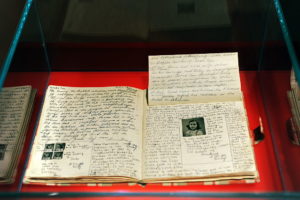
Anne Frank’s diary (Photo by Ulli Winkler/ullstein bild via Getty Images)
August 1, 1944: Famous diarist Anne Frank wrote her last words into her journal: “[I] keep on trying to find a way of becoming what I would like to be, and what I could be, if … there weren’t any other people living in the world.” During World War II, Anne and her family hid in the secret compartment of a house in Amsterdam, due to their Jewish heritage. They were arrested three days after her final entry and sent to Nazi concentration camps. Anne died at the age of 15 on March 15, 1945.
August 1, 1944: The Warsaw Uprising began, during WWII. About 40,000 resistance fighters of the Polish Home Army started shooting the occupying German troops in the streets. The rebellion lasted for two months.
August 2, 1776: The Declaration of Independence was signed by most of the 55 members of the Continental Congress.
August 2, 1923: President Warren G. Harding died in San Francisco while he was on a speaking tour. Calvin Coolidge succeeded him the next day.

August 2, 1939: Albert Einstein was concerned about atomic weapons and wrote a letter to President Franklin D. Roosevelt, saying, “A single bomb of this type carried by boat and exploded in port, might very well destroy the whole port together with some of the surrounding territory.” Six years later the first atomic bomb was dropped on Hiroshima in Japan.
August 2, 1990: The Iraqi army invaded Kuwait. This led to America’s conflict against Iraq with Operations Desert Shield and Desert Storm.
August 4, 1962: Activist Nelson Mandela was arrested in South Africa by security police. He was released from prison, in 1990. A few years later, in 1994, he was elected president.
August 5, 1583: Sir Humphrey Gilbert founded the first British colony in North America.
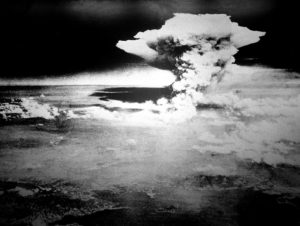
The pyrocumulus, or firestorm-cloud, over Hiroshima after the atomic bomb attack. (Photo by Roger Viollet via Getty Images)
August 5, 1861: During the Civil War, President Abraham Lincoln signed into law a 3% tax on incomes over $800. This was the first federal income tax, but it was never actually used.
August 6-10, 1787: During the Constitutional Convention, the Great Debate began. The members agreed to establishing a four-year term for presidents, among other things.
August 6, 1945: At 8:15 a.m., the first atomic bomb was dropped on Hiroshima, Japan. It killed more than 105,000 people and destroyed the city. It is estimated that another 100,000 people later died due to radiation from the bomb.
August 6, 1962: After centuries of being ruled by the British and Spanish, Jamaica achieved its independence.
August 6, 1965: President Lyndon B. Johnson signed into law the Voting Rights Act of 1965.
Famous Birthdays
Francis Scott Key (August 1, 1779) was born in Frederick County, Maryland. He is the author of the Star-Spangled Banner.
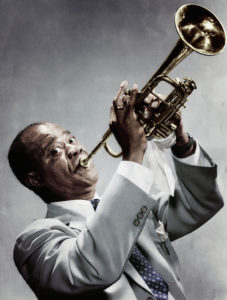
Louis Armstrong (Getty Images)
Herman Melville (August 1, 1819) was born in New York. He is the author of Moby Dick.
Ernie Pyle (August 3, 1900) was born in Dana, Indiana. He was a war correspondent who received the Pulitzer Prize for reporting on the bombing of London in 1940 during World War II.
Louis Armstrong (August 4, 1901) was born in New Orleans, Louisiana. Nicknamed “Satchmo,” Armstrong was a jazz trumpet player and his known for his renditions of Hello, Dolly and It’s a Wonderful World.
Raoul Wallenberg (August 4, 1912) was born in Stockholm, Sweden. During the Holocaust, he saved around 33,000 Jews.
Barack Obama (August 4, 1961) was born in Honolulu, Hawaii. He was the 44th US president and the first black commander-in-chief.
Alfred, Lord Tennyson (August 6, 1809) was born in Somersby, England. A poet, some of his best works include The Charge of the Light Brigade and Ode on the Death of the Duke of Wellington.
Alexander Fleming (August 6, 1881) was born in Lochfield, Scotland. By accident, he discovered penicillin after learning mold killed deadly bacteria without hurting human tissue.
















